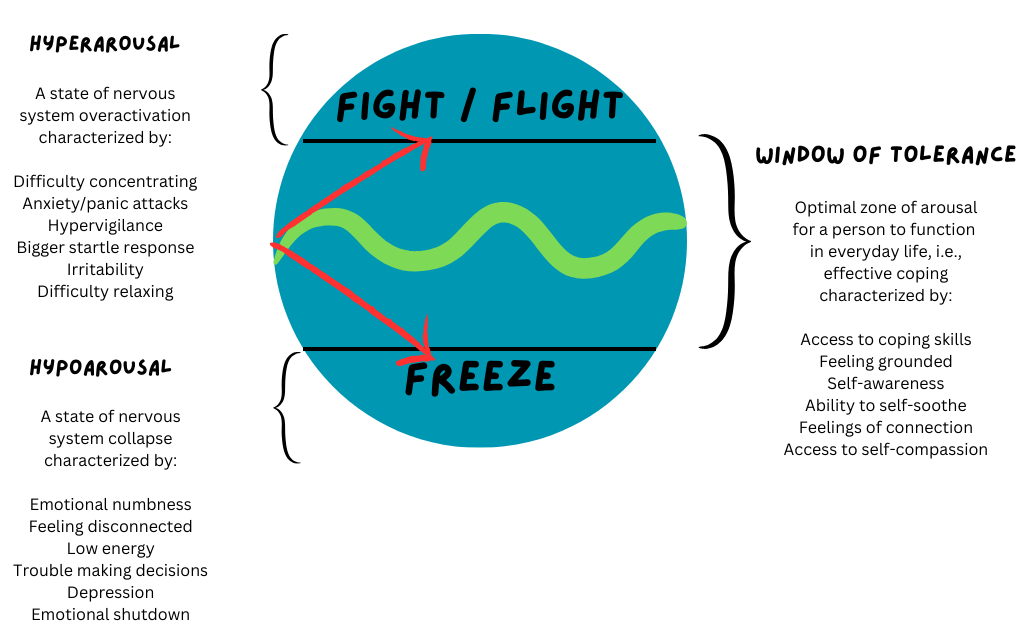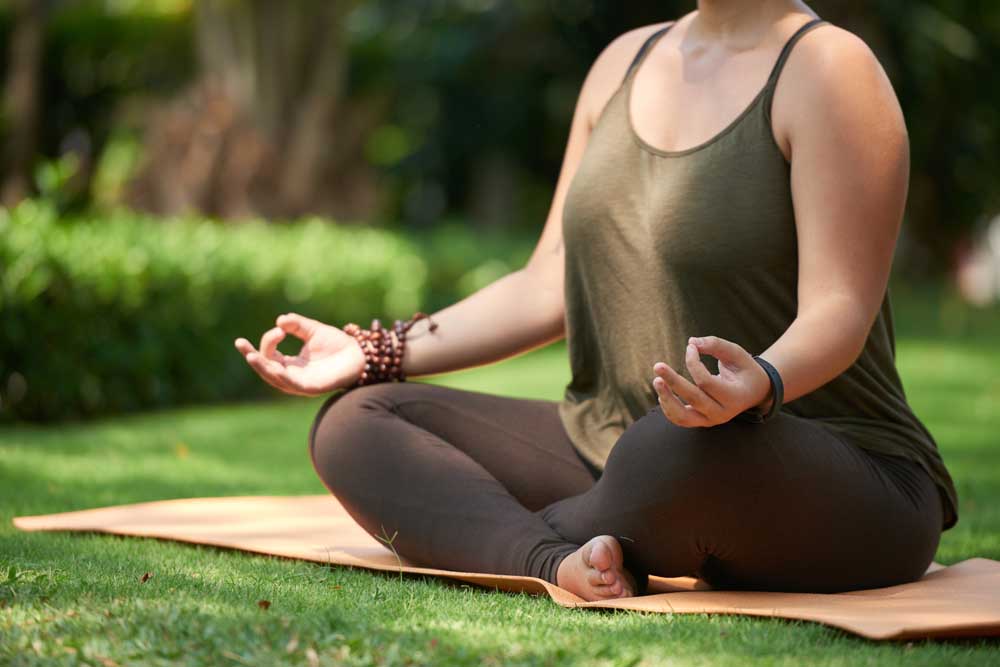So much of the safety that is integral in therapy, especially for those of us with trauma histories, lives in the complex balance of security in the present moment and entering into vulnerability (painful emotion). Knowing this, it's important to develop coping and...
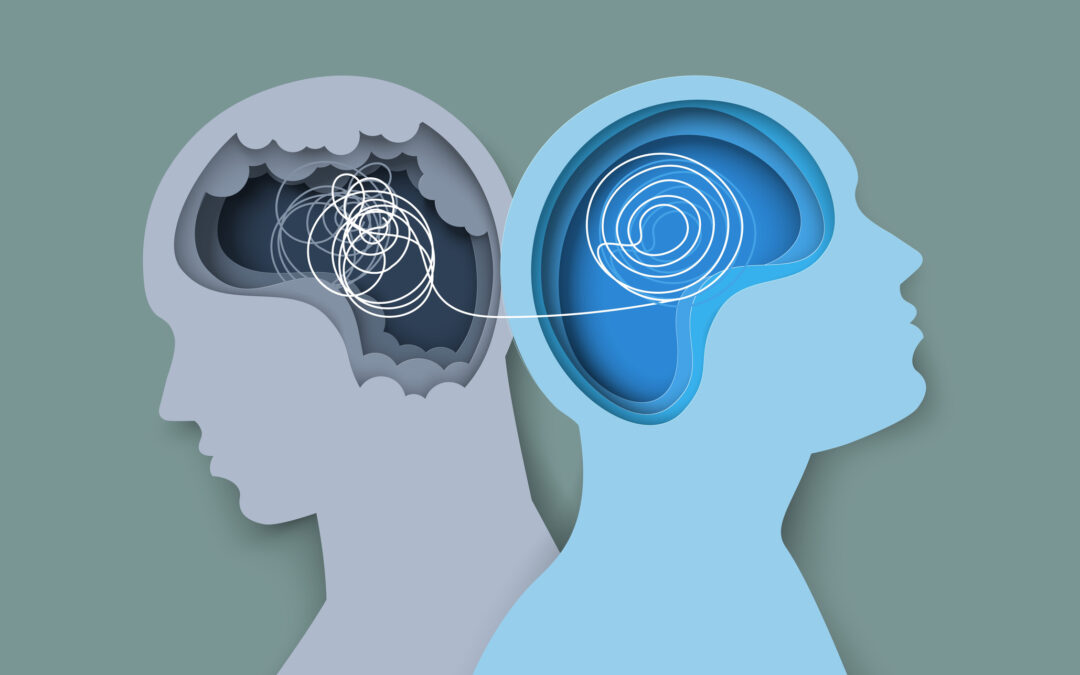
Window of Tolerance 101
Navigating Trauma with Compassion
Finding Safety in Vulnerability
So much of the safety that is integral in therapy, especially for those of us with trauma histories, lives in the complex balance of security in the present moment and entering into vulnerability (painful emotion). Knowing this, it’s important to develop coping and grounding skills for withstanding the pain. At times, skill development feels frustrating (I know I have, on a number of occasions, balked at having to develop skills to cope with pain I did not ask for).
Strengthening Coping Strategies
Widening the Window of Tolerance
Practical Applications
Everyday Examples of Staying Within the Window
Remaining inside your window of tolerance doesn’t mean you don’t experience emotions. It means we minimize the distress that occurs when a painful emotion is present. Essentially, existing within that window means you can experience sadness, fear, or anger without triggering a survival (fight/flight/freeze) response. If you have ever become frustrated with a distracted driver while maintaining your ability to focus on the road, become upset with a partner and took space away to process emotions before resolving conflict, or made a mistake on a project and were able to reframe negative thoughts about yourself – You have remained within your window.
Reflections on Progress
Becoming a Harbor of Safety
Progress in therapy does not mean something isn’t sad or scary over time. It means you become your own harbor of safety and remain compassionate and present with yourself as you heal. Safety is not always necessarily the absence of danger; safety is your ability to connect with yourself, your support system, or your coping skills when danger is present.
The Balance of Safety and Vulnerability in Therapy
In therapy, especially for those with trauma histories, safety is a delicate balance between feeling secure in the present moment and being open to vulnerability. This balance is crucial for healing and growth.
Developing Coping and Grounding Skills
Developing coping and grounding skills is essential for managing painful emotions. Although it can be frustrating to build these skills, they are vital for maintaining a sense of safety and stability during therapy.
Expanding the Window of Tolerance
When your therapist helps you ground yourself, develop coping skills, and stay present, they are helping you expand your Window of Tolerance. This allows you to experience emotions without triggering a survival response, enabling you to process and heal more effectively.

Window of Tolerance 101
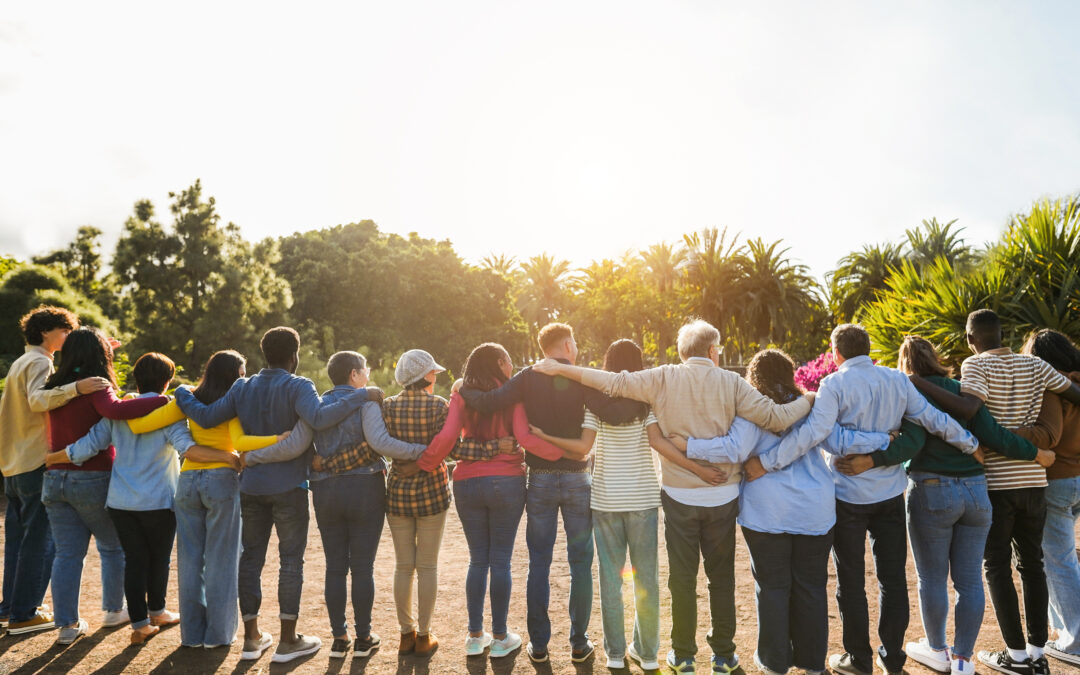
The Power of Community in Trauma Survivorship
sistent across human history has been the importance of community. Safety in numbers against a predator, the sharing of resources, or simply holding space for one another are all integral to our survival. Yet, largely, our individualistic culture places emphasis on...
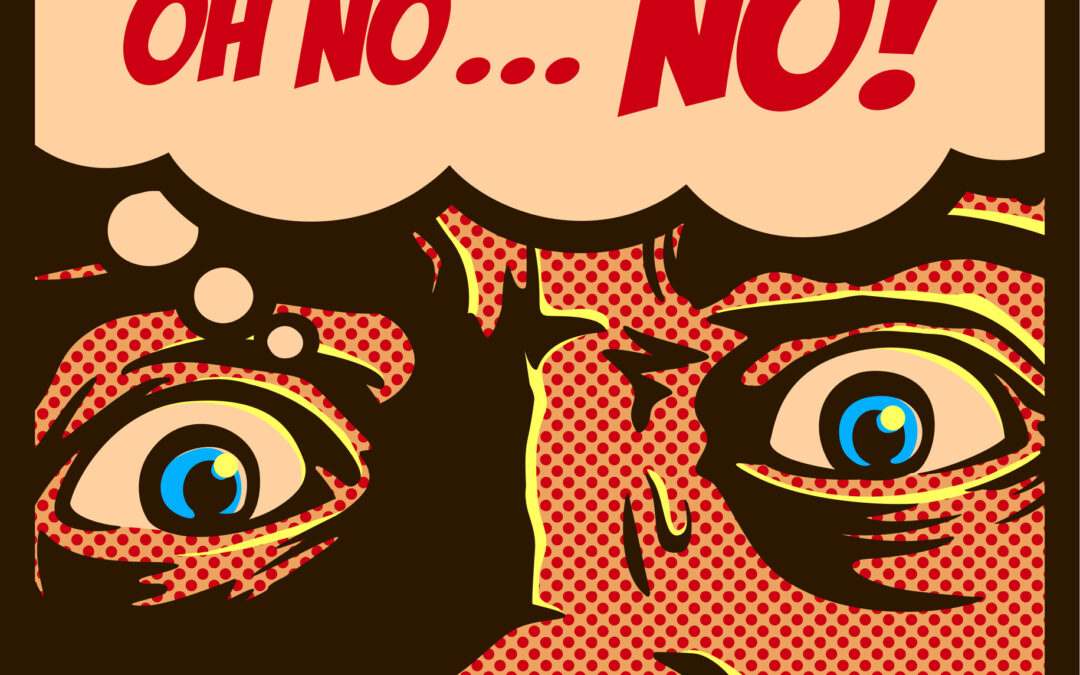
3 Unconventional Ways to Stop a Panic Attack
Panic attacks feel different for everyone, but typically include sensations like a pounding heart, sweating, a feeling of terror, constricted or rapid breathing, and feeling as though the room is closing in on you or spinning. Regardless of how they present, a...

The 12 Best Mental Health Apps
Modern technology can be an amazing supplement to professional counseling. Check out these 12 Apps that come recommended for recovery from depression, eating disorders, PTSD, insomnia, and anxiety. DEPRESSION RECOVERY APPS 1. TalkLife (online support tool)...

When to Worry: Recognizing Signs of Trauma in Your Loved Ones
Over the past several years, there have been numerous traumatic events making news all across the country. From incidents of mass violence to devastating natural disasters, hundreds of thousands of Americans have experienced or witnessed a disastrous or...

